|
Christopher Nolan’s Inception has widely been hailed as a masterpiece, a magnus opus that explores themes of the human mind, imagination, “leaps of faith,” and most importantly, the concept of reality. It’s an interesting reputation, seeing as the majority of the film’s proponents have admitted that they have no idea what the conclusion of the movie means in context of the whole concept, and they’re ultimately left happily confused. It proves something that the movie itself wants to illustrate for the viewers: our understanding or certainty of a thing doesn’t really dictate our enjoyment, or even our participation. After all, we willingly become parts of things and institutions that we don’t understand: do most of us really understand how our own bank accounts, investments, and retirement plans work? They’re often the things that we count on to sustain us and our families into the largely uncertain future, yet we often don’t look deeper than what we’re told by so-called advisors and experts.
The question, in the movie and our lives, is whether or not we actually need to. If you’ve seen the movie, you know how the ambiguous end features a dreidel spinning but appearing to falter as the screen goes black suddenly. If the dreidel continues spinning, it means that the world that the protagonist Dom has successfully made it to is actually a dream, and if it stops it signifies that Dom is in fact, still dreaming. And the interesting thing about this end is that earlier in the movie he watches the dreidel intensely waiting with gun in hand to quite frankly (blow his brains out) if the dreidel stops spinning, he now spins the dreidel with quite some force and walks away from it; after all he’s been through, he honestly doesn’t care what’s reality or not. He’s been reunited with his children after two years, back in his home country after being kept out as an international dream-thief. And there’s a delicate balance in this. The lesson in the movie isn’t to blindly stroll through life believing everything you’re told and accepting everything as concrete. After all, with this mindset nothing would ever be innovated because no one would ever question the status quo. However, there is merit in knowing when to be patiently content, to take what is as what should be without rocking the boat in every matter. Living life like this, we’d probably all be quite tired and insane. That balance has to come with learning to “accept the things we cannot change, the courage to change the things we can, and the wisdom to know the difference." The balance isn’t clear-cut, and like with most things, there is no manual to figure it out on the go. Our manual is knowledge by way of experience, and sometimes failure. So there’s wisdom in both of the ways we can see the end of the movie, whether that be accepting a reality or continuing to question the world around you. It all depends on if you’re a Dom or a Mal when you wake up.
1 Comment
Children’s movies are almost never “just for kids” these days. And that’s a good thing, because if you’re a parent, you know that your kids not only want you to go see movies with them, they want you to love it! And with movies like Lion King, you truly can.
Lion King is an incredible, moving story of a son who lost his beloved father and is uprooted from his home in a political coup, only to return later on to face his past, his personal demons, and the new illegitimate king and become the leader he was always meant to become. Still sound like a silly kids’ movie? There’s lots to learn here, and we can start from the beginning, with an eager Simba who “just can’t wait to be king,” even though he has no idea what being king means. In other words, he wants power, respect, and responsibilities even though he has no idea what they really entail. When his father, Mufasa, is killed by his scheming uncle, Scar, he quickly learns that the life of a king is not one he wants. His uncle tricks him into running away from home for fear of being blamed for his father’s death and he seems to abandon his destiny. Fast forward some time, he’s made new friends far from home and has even fallen in love with Nala, a childhood friend. When he finally gathers the courage to come home, he struggles initially to have the strength to defeat Scar, but he finally overcomes and there is, of course, a happy ending. So what can we learn from the movie, underneath the cute animation and catchy songs? Often, we’re unprepared for the destiny that we want, and we have to go through tough learning processes in order to get us ready for the greatness that’s in store. Our trials and tribulations can seem unfair or rushed, like we’re having our innocence taken away from us, but we easily forget how we ask for certain things and want them right away. Sometimes,God is makes us wait and puts us through these things so that He can give us what we ask for. And it’s not out of a cruel sense of humor, it’s because we really do all have destinies that require our best selves to fill the role. So don’t be discouraged if you feel like you’re far away from your destiny! There’s a process and tests you have to go through before you can enjoy the fruits of your labor, so keep your head down and learn your lessons now so you can have what you want later on. If you’re like me, you’re constantly trying to get more out of your day, but you know there are some habits you have that are hindering you from doing so. What’s worse, you know you have to get rid of them but you just don’t know what to do in their place so no matter what you always fall back into the same old habits. Well, there’s good news and there’s bad news and they’re actually the same thing: you’re just like everyone else! So here’s how to breakout from those productivity barriers and stand out.
Find Out How You Work Best Everyone has work habits which make them more productive, creative, efficient, and so on. If you don’t have any, don’t worry! You likely haven’t taken the proper time and attention to find out what they are. Think about a time when you were “in flow”, working at what seemed to be a miraculous pace and not missing a step: it feels like you’re performing and creating at the same time, and it’s a very unique feeling so you probably know exactly what I’m talking about. Now hold that memory: where were you? What kind of chair were you sitting in? Were you sitting at all? Were you listening to music? Were you typing or talking? All of these are important questions to ask in order to recreate our best work scenarios and maximize our productive potential. It doesn’t guarantee that every time you prepare to get work done you’ll slip into this super-mode, but it definitely helps your chances at getting more quality work done. Eliminate Distractions This seems like a “duh” point to make, but it’s of paramount importance so I really should mention it. You must learn to put your phone down (I’m talking to you, fellow millennials), close out your social media tabs, and even listen to music with minimal distractions. Unless your work directly involves social media, it’s nothing but a distraction, and even though it feels like a harmless bit of time is being wasted, that time adds up! The chances of you having an epiphany while you’re engaged with it are slim to none anyway, so I’m doing you a favor. And as for the music, heavy, loud production in the background of your working mind tends to actually throw you off: if you’re playing a song that makes you wanna dance, not only are you trying to pour your focus into your work, you’re also having to be very intent about trying not to dance at the same time! Classical, house, and soul music tend to go great with work habits so take some time off on a lunch break or weekend to make a playlist of work-friendly music you can listen to to keep from focusing more on the music than your work. Schedule Your Time Out One of the worst mistakes you can make when it comes to trying to be productive is starting your work day with a “blank slate.” Of course you have things to do, but you have no plan of action, and as the saying goes, if you fail to plan, you plan to fail. And if you’re reading this, you’re at least a little invested in your success, so do yourself a huge favor and make a list, even if it is only mental, of things you want to get accomplished that day. Prioritize the list, and do your best not to stray from the plan! Barring any unforeseen circumstances or interruptions, you should be able to exercise discipline and knock those things out as long as they’re reasonable, thought-out goals. This is a big deal! Even if you’re not a ‘planning type of person’: become one! Take Controlled Breaks I don’t really have to speak to his too much because I believe we’re all naturally lazy so breaks pretty much come naturally. However, what doesn’t come naturally is taking smart breaks. Our “me” time needs to be optimized, minimized, and taken often. A small 5-minute breather when you finish writing a blog post, for example (a personal favorite). Or maybe you tell yourself you’re not going to get up and grab that snack until you finish a portion of a design you’re working on. Whatever it is, set mini-goals throughout the day and reward yourself for them. Not only will it make sure you’re not wasting as much time, it will also motivate you. The pleasure centers in your brain need stimulation which is converted into energy you can use to be productive, and whereas most people are getting this stimulation from social media and putting it right back where they found it, you can stand out by making those ‘gold star’ moments go towards achieving another one! So, it really is good to pat yourself on the back, and to do so fairly often. Well, what are you still reading this post for? Break’s over: go be productive! We tend to think of heroes as people who begin their journey as heroes with certain values already in place, set goals and belief systems which guide them on a journey towards a noble outcome. However, in the origin story of "Doctor Strange", we experience a hero whose moral character is mostly eroded before he gains supernatural abilities. Characters like Captain America were shining examples of society before they got that one 'secret ingredient' that made them, well, super. In Cap's case, it was the Super Soldier Serum, but in the case of the famously gifted and super arrogant Doctor Stephen Strange...it's unclear. On the surface level, you might watch the movie and say "well, before he learned magic, Strange wasn’t the type of guy I’d want with any kind of special abilities...after all, look at how he acted with his natural talents! That magic must have changed him.”
To a certain point, you’re correct. The magic did change him; it granted him the knowledge and expertise he needed to be a hero at the end of the day. But realistically, the thing that started his metamorphosis from being exceptional to becoming unlimited was the trauma, disappointment, and pain of his car crash. Think about it: he never would’ve been in those mountains in Tibet if he wouldn’t have lost his ability to perform surgery in the crash. And more importantly, he never would’ve been open to receiving more than the status of his happy, selfish equilibrium if he hadn’t lost it all. Losing it all gave him the opportunity to rebuild, reframe, and exceed his former life, even if that former life was that of a world-renowned neurosurgeon. This is where I find the deepest and most impactful message in the film. Many times in life, we view setbacks, disappointments, and quite frankly huge losses as death sentences, but we often ignore the fact that the only death sentence comes when you take your final breath. Until we die, there is still so much more we can do. Take the case of another extremely intelligent and successful Stephen, the impressive Mr. Hawking: diagnosed with Lou Gehrig’s disease at a time in his life when he was just beginning to make breakthroughs in his field, he refused to let his circumstances define him. In fact, he kept a positive attitude when those around him, his own loved ones, struggled to do the same. He defined his future by changing the way he looked at his past and more importantly his present. We have to start thinking like these Stephens! Wake up everyday and take hold of the fact that you can change your life starting right now. No matter what has happened to you, if you devote yourself and promote positivity and faith, you can push past that and have great things happen through you. And the best part about it: there’s no magic required! The Dark Knight has been heralded as one of the best movies of all time for a reason: not only does it have an amazing plot, it has deep character development and complexity that makes the world of one of the most popular superheroes of all time seem incredibly realistic. One of the most impactful scenes in the movie starts off light-hearted: a boisterous Bruce Wayne puts tables together at a restaurant he owns, joining the two parties of himself and his date (a beautiful Russian ballerina) and the dynamic district attorney, Harvey Dent, and Rachel Dawes (also one of Bruce’s exes). They begin to discuss city politics and eventually Batman, and they get into the topic of whether or not the Batman is welcome, or even needed. Bruce, forever shrouded in mystery, seems to put down the notion of a hero in a city that needs law and order, but Dent sticks up for the Batman who he doesn’t know is sitting right in front of him, saying that the Batman is simply performing a service that the city clearly needs. Rachel points out that the Batman might overstay his welcome if he continues to have as much power as he has without anyone to check him, to which Dent replies,
“...ok fine, you either die a hero or you live long enough to see yourself become the villain.” This is one of the most important lines in the film, for more reasons than I care to get into right now, but for one reason in particular. It holds so much philosophical significance because it speaks to the nature of humanity, and of great men and women, as a whole. The quote basically means that no matter how good one’s intentions are, given enough time and power, their legacy will eventually become one that turns love and adoration into hate and scorn. We see this concept acted out in the real world more often than we realize: Steve Jobs created Apple and led a computing revolution which created effects that we still feel today, but at one point he was ousted from his own company for the same strong, innovative nature that turned the company into what it is. Even Jesus, a perfect human, had fate take a turn for the worst, spending his entire life caring for and ministering to others only to have those same people turn against him in his final hour and heap false accusations upon him which led to his death. No matter how good we are, time makes fools of us all. But the truth is that this is just the circle of life, and for us to have new role models, we must expose the holes in our old ones. To build, we must tear down. And most importantly, we shouldn’t fear this transition, but we should do everything in our power to make sure that when it is our time to be the heroes, we make our actions and our characters worthy of that title. Goodfellas is a classic mob movie, but it’s unorthodox in a very signature way because the main characters aren’t made men, or in other words, they’re not members of any crime family. They’re simply career criminals with connections. However, the way they move and operate is very mob-like: it creates a feel to the film that reels us in with the traditional character roles and plot points but endears us to the characters because, besides the fact that they rob and steal for a living, they’re regular civilians, learning and operating in ways that we can all relate to. It’s made even better by the fact that the film is based on the true story of Henry Hill, the main character, and his experience with and around the Lucchese crime family. One of the lessons learned in the film is about loyalty, and Hill learns this lesson quickly, as he’s only 11 years old when he’s picked up by the cops for selling cigarettes illegally. Even though he was selling them under the command of a more powerful boss, and with another young boy, he doesn’t ‘squeal’ at all and he’s out of jail in no time. Upon being freed by the judge, he’s pulled aside by his mentor of sorts, Jimmy Conway, and given some very serious (and now famous) admonishment:
“Never rat on your friends, and always keep your mouth shut." It’s a thing that’s been said many different times in many different ways, but this one has a certain ring to it, a catchy feel. Maybe because it’s essentially saying the same thing twice: it reveals an uneducated person’s attempt to instill values that are ultimately unwise. By the end of the movie, it seems that the lesson has been completely forgotten, as Henry Hill ends up giving up all his friends and going into the Witness Protection Program as a way to escape the life which was destroying him and his family. Ultimately, it’s a lesson within a lesson, teaching that no matter how much we hear something, or how many times other people try to force us to believe in an idea, it’s never going to be enough if we don’t personally subscribe to it. After all, if you can tell someone to do one thing for decades and they still do the opposite, what’s the point of it all? The message of the movie becomes clear in this light: we have to choose what we care about and believe in and that’s what will ultimately determine our destiny. I was 21 years old and in love. I had recently met a beautiful young woman at an INROADS leadership conference in Grand Rapids, Michigan and I was a year away from graduating with a finance degree and no student loans. She asked me a question that changed my life. "What is your credit score?" I thought, what is a credit score? Little did I know, that there were 2 unpaid bills in my name that I didn't sign up for, and 3 unpaid hospitable bills due to an insurance lapse I didn't know about. Here's what I did to fix my credit score. (Spoiler Alert: that young lady is now my wife of 12 years!) 1. Contacted All the Companies I Owed I owed the hospital, a doctor's office, the cable company, and the electric company. Why do I say I owed them even though I didn't sign up for the services and I thought insurance covered the hospital visit? Because I was responsible for my own credit. The electric company said I needed to file a police report if there was identity theft. I did not do that because I didn't want to hurt a family member. So I asked if they would accept a lower amount if I paid it that day. They said yes! I did the same thing with the hospital and created a two-part payment plan. 2. Signed up for a Secured Credit Card At the time U.S. Bank offered a secured credit card, where you put money in a savings account equal to the amount of the credit card limit. If you don't pay off the credit card then the money from the savings account covers it. With my credit score this was the only way I could build credit. I started with $250 and after 2 years my credit score improved 200+ points (it was pretty low). After 3 years I was able to increase the limit and receive a check for my savings balance. 3. Moved in With Family After I graduated from BGSU, engaged and ready for life, I had to move in with my aunt and uncle to save money and focus on rebuilding my credit score. This was beneficial to me for more reasons than one. I also learned from their 30+ year marriage. While I lived there I paid rent, read several books, and began planning my financial future. As as a result of these decisions, my wife and I were able to buy our first home at 24 and I was finally able to buy a car in my name at 28. Today my credit score is 400 points higher than it was nearly 15 years ago. - Vontoba Terry Author, Entrepreneur Resources: AnnualCreditReport.com (free) There are plenty of factors that play into you becoming the best employee or employer or entrepreneur you can be, and if you’re smart, you’ll never be finished trying to improve in this aspect. For many people, one of the biggest challenges to be faced is gaining confidence in the workplace, whether it be in presenting work to colleagues, having conversations with a higher-up, or just being able to calmly put your best foot forward as an important piece of an organization. It’s not easy being able to look and feel like your best self if you feel like even your best self pales in comparison to the great minds of the organization you’re a part of. Maybe you’re stuck in a toxic corporate culture that fails to recognize your value, working with colleagues who have a perception of you that you think you can’t escape. In any case, it’s important that you’re able to gradually expand your repertoire as a businessperson and exude the confidence that not only draws people to you and your ideas, but also allows you to unlock a new level of greatness and fulfillment in whatever position you’re in. Speaking from personal experience, it takes some time and a lot of hard work, but the payoff is absolutely worth it. When I started off, one of my biggest challenges was distractions. Things pop out throughout the day and you’re forced to deal with them, and more often than not it’s not the way you planned for things to go. It can throw you off your game and change your attitude about your work; when you feel like you’re not in control, confidence wanes because confidence is all about being in control of yourself and how people see you. As I moved forward in my career though, other things proved to be unique obstacles, such as budget limitations. Not having enough money can keep you from being self-assured about the quality of your work, and if this is work you’ll have to share with others (which you most likely will), you may panic about all the things that could’ve gone better. Once again, you have to realize that the only things you should worry about are things you can control. With your portion of time and resources, are you giving your best effort to contribute to the goals and progress of your organization? If so, you have to step into the spotlight as confidently as you can and let it be. What are your biggest challenges in building confidence? Let me know in the comments below or tweet them to me with #ConfidenceCrashCourse! You can also learn more by following me on Instagram, Twitter, and Facebook @vontoba I jumped with a parachute.
I worked for a great bank and worked my way up to a Vice President role providing advice and services to some of the largest companies in the U.S. After nearly 10 years in the commercial banking business, I wanted to join my wife in growing our family business, UI Global Brands. Yes, I left a great corporate career, to sell bras, panties, and body wash! And I haven't looked back. Here's 3 lessons I learned: 1. I Didn't Know As Much As I Thought I Did I thought that I could join my wife at the office and hit the ground running day one. After all, I had worked lunch breaks, evenings, and weekends supporting the business while I was working my full time career. I soon learned that there was so much more to running a business and because we were growing and adding customers, I had to check my pride right away. I became our HR guru (in training), and I was tasked with finding people who could support our vision. I also had one month to find a new warehouse for our products. I learned a lot from my mistakes, and being humble made the transition easier. 2. I Knew More Than I Thought I Did When I left corporate, I had no idea we would launch 2 new apparel collections and a hair care line, and we were also in the midst of investor negotiations. All of a sudden, I was able to draw on 12 years of experience advising large and medium sized companies and analyzing their financial and operational strategies. It was exhilarating. I was on the other side of the table, and over the years I had met a lot of great people who taught me about their businesses. Armed with an M.A. in Economics and an undergraduate degree in Finance, I was able to tackle challenges in a strategic way. When I didn't know the answers, and that was often, I was able to call my friends and contacts for advice, which taught me a third lesson. 3. I Need People When we were preparing to launch a haircare line, I called an executive at a major retail chain and asked questions about their strategy and how I should look at the numbers. I also called the CEO of a company that supplies that retailer and learned about the good and the bad in their experience. When a shipment from overseas came in damaged, I called the CEO of a multimillion dollar corporation for advice. Within an hour he had me on the phone with his logistics manager and I understood what we could do differently in the future to avoid this problem, and if it happens again, how to insure against the risk. When I feel like things aren't going as planned or just not moving as quickly as I would like, I am able to walk next door to my wife's office, have a healthy and uplifting conversation, get fired up, and keep going. I learned a lot in my first year out of corporate America. I hope these lessons help you in some way. - Vontoba "The Art and Science of asking questions is the source of all knowledge." - Thomas Berger I left corporate America last year and I haven't looked back. Along with my wife of 12 years, I am running a family business that sells beauty and apparel products to the largest retailers in the world. We're also growing an e-commerce website that has reached hundreds of thousands of people around the world.
Thank you for visiting my blog. This will be my hub for sharing information about small business, entrepreneurship, financial planning, and personal growth. I am passionate about giving and growing, hence my mantra: "Give and Grow." Also, please follow me on Facebook @vontoba and on YouTube for more tips, hints, and advice. All the Best, Vontoba |



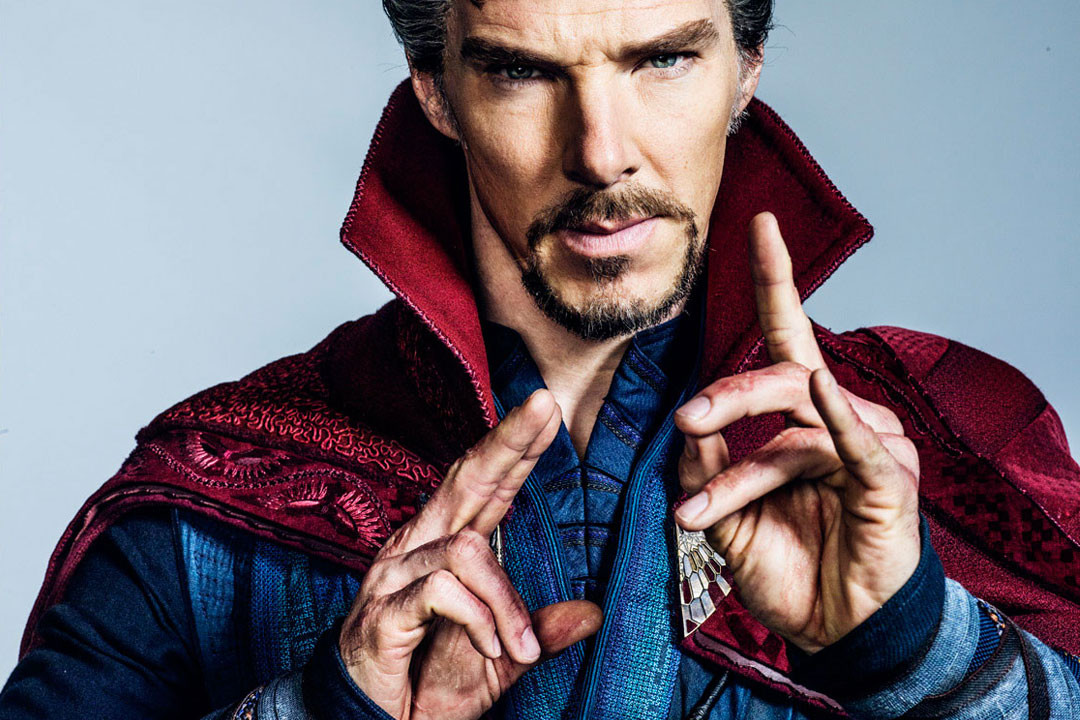
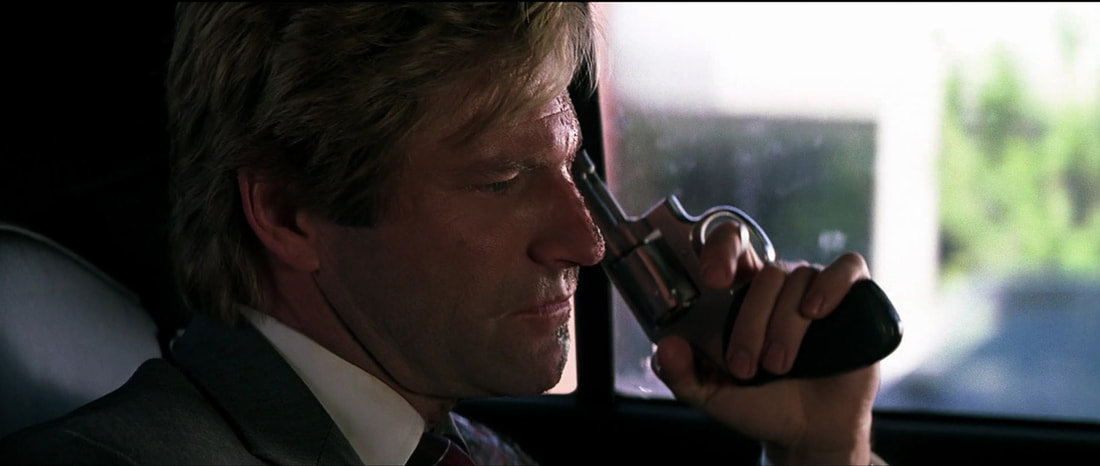
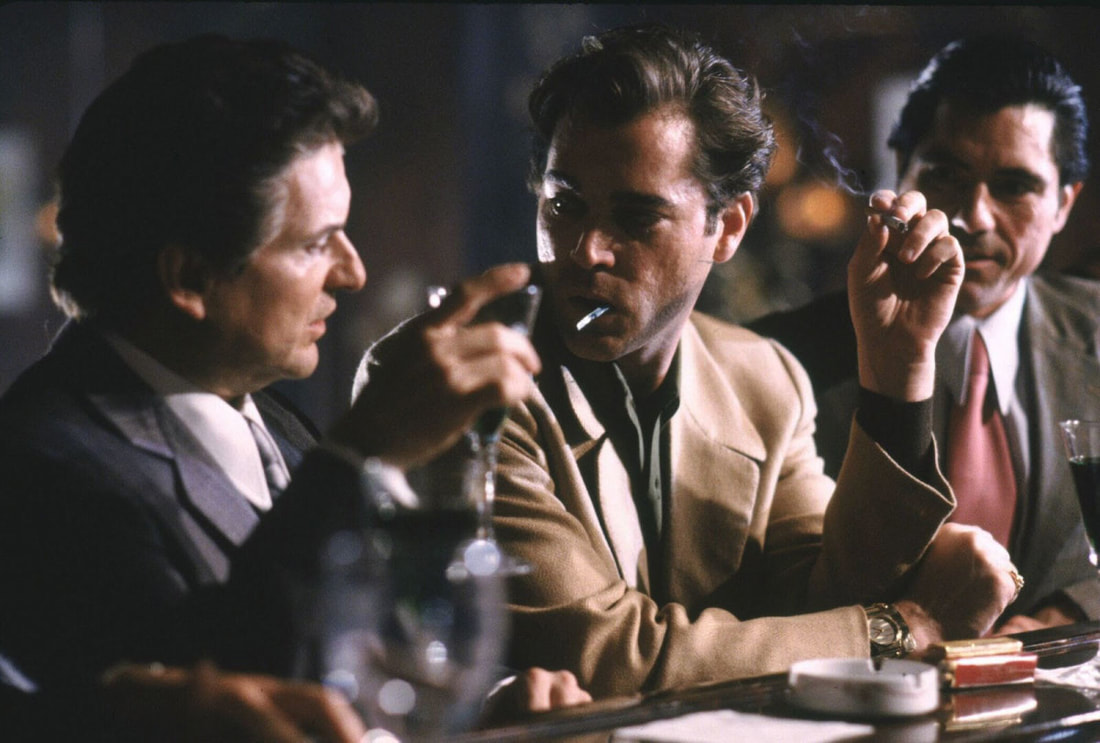
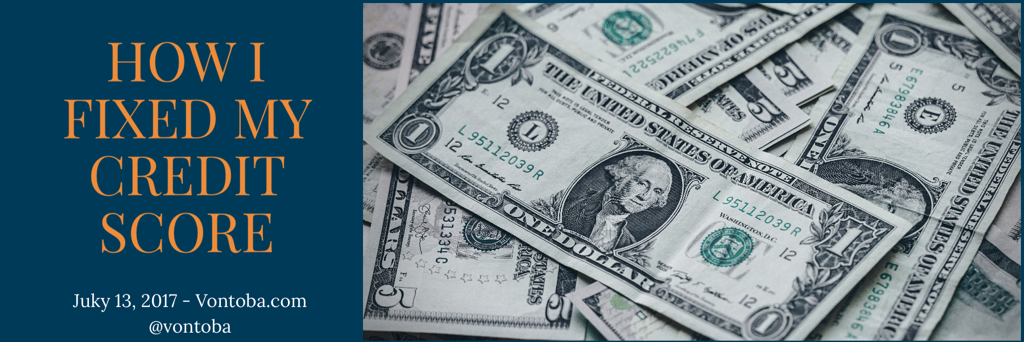
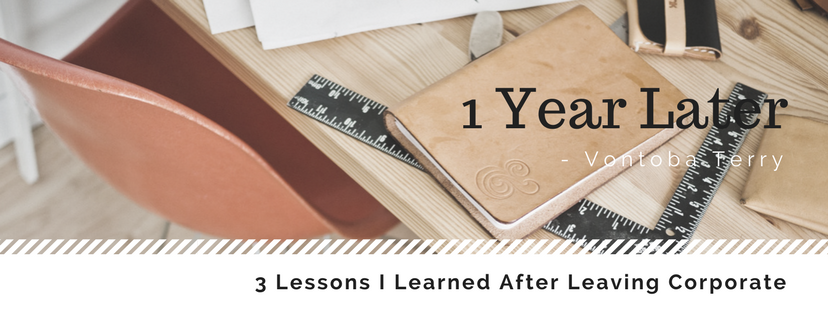
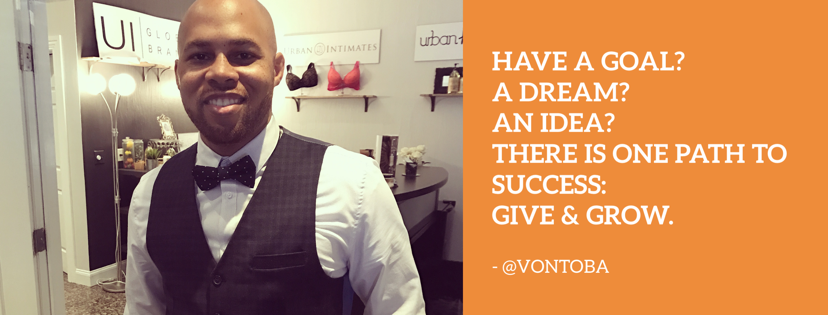
 RSS Feed
RSS Feed